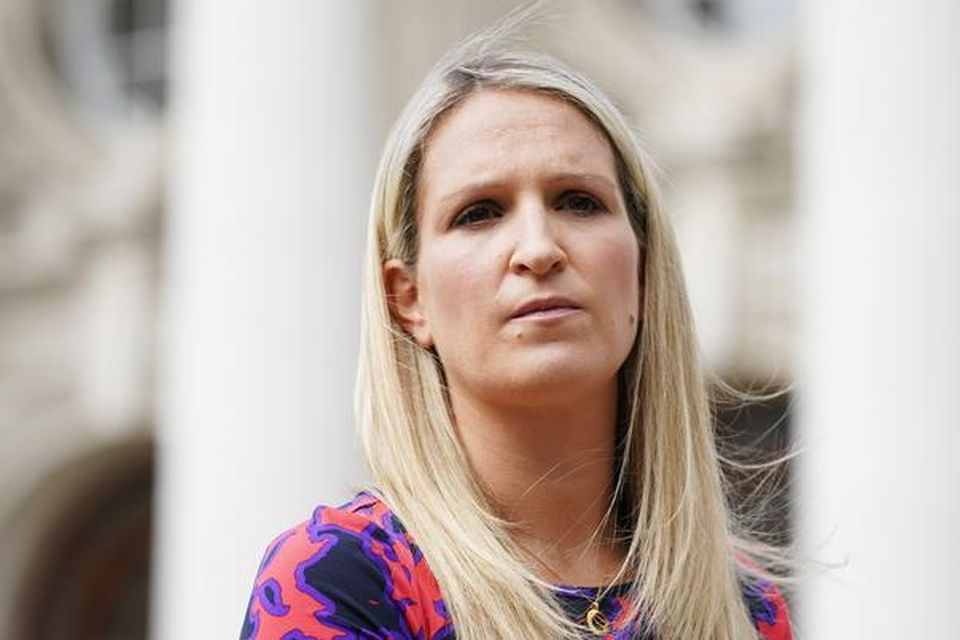Editorial: Immigration crisis is getting harder to manage
Justice Minister Helen McEntee
Justice Minister Helen McEntee intends to introduce further measures that the Government hopes will ease the number of asylum-seekers arriving in Ireland either directly or via the United Kingdom.
The immigration crisis is becoming increasingly difficult to manage. For too long, delayed actions here and the knock-on effect of decisions elsewhere, particularly in the UK, have added to the pressures authorities have to deal with.
As the country struggles to meet the demand for asylum and refugee status, protests at proposed accommodation centres around the country are becoming more fraught. As this newspaper reported last week, asylum-seekers from countries deemed “unsafe” by the Government will now be processed through what is being called a “fast-tracked international protection system”.
In a twin-track approach, the minister will also introduce legislation to take account of a recent High Court decision that Ireland’s designation of the UK as a “safe third country” to return asylum-seekers to is contrary to EU law. The High Court ruled that the UK was not a safe country for asylum-seekers due to the risk of onward deportation to Rwanda.
This is related to the Irish Government’s decision in 2020 to designate the UK as a “safe country” under the State’s International Protection Act in the aftermath of Brexit.
The Government has not formally reviewed the situation in the UK since then, although the asylum system there has significantly changed after the introduction of the so-called “Rwanda policy” to deport asylum applicants mostly from the continent of Africa.
Buoyed by right-wing British newspapers, UK prime minister Rishi Sunak said yesterday that claims that the “Rwanda plan” is causing increased migration to Ireland shows its deterrent effect is working. “The deterrent is... already having an impact because people are worried about coming here,” he said.
Last week, Ms McEntee and Foreign Affairs Minister Micheál Martin said the number of asylum-seekers coming to Ireland from the UK via Northern Ireland had significantly increased as a consequence of the Rwanda policy, with migrants mostly from Nigeria making up around 80pc of the total number of asylum-seekers here.
While legislation to take account of the recent High Court decision is awaited, the Government is letting it be known that the proportion of applications for asylum here from safe countries has declined since the introduction of accelerated processing of applicants.
Now Ms McEntee intends to introduce a similar system from “unsafe countries” like Nigeria, meaning applicants from such places can expect a decision made on their case within three months. Is this feasible? The International Protection Office and the International Protection Appeals Tribunal are both already struggling under the sheer volume of cases to be heard and decisions to be made.
Should Ms McEntee’s proposed legislation to take account of the recent High Court decision bridge the gap between safeguarding requirements prescribed, asylum application cases will continue to take some time to be heard.
It seems evident that the immigration crisis in Ireland will become even more challenging in the weeks and months ahead, and it would be advisable for the Government to be upfront about that now, rather than promising solutions that will take time to have a longer term effect.
Join the Irish Independent WhatsApp channel
Stay up to date with all the latest news















